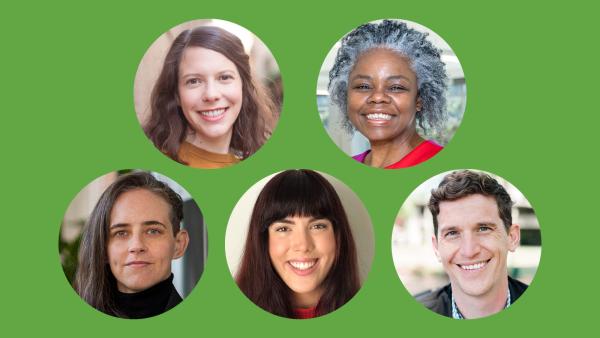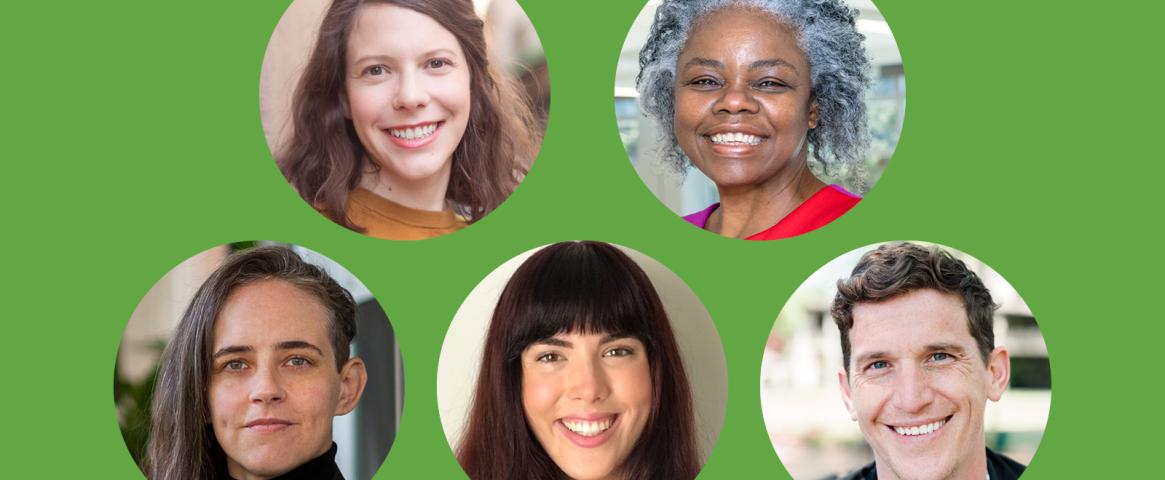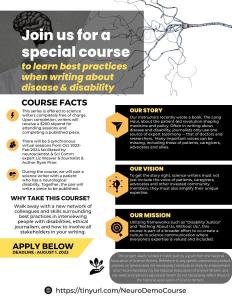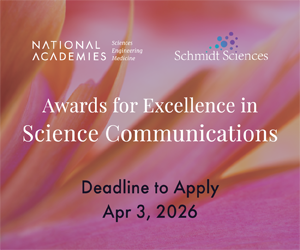The Grants Committee of the National Association of Science Writers has selected three proposals to receive its NASW Peggy Girshman Idea Grants for 2023. The $30,400 awarded in this latest funding round adds to more than half a million dollars granted since the program’s inception in 2010.
Created to provide seed grants to projects and programs that encourage science writing professions and professionals, NASW’s Idea Grant program is named in honor of the late journalist Peggy Girshman, who passed away in 2016. Girshman, a founding member of the NASW Grants Committee, was a longtime mentor and advocate for science writers. Her distinguished career included positions at several media organizations, including NPR, several broadcast organizations, and Kaiser Health News, which she helped co-found.
The committee reviewed 24 proposals, awarding grants to the following programs:
Introduction to Children’s Science Podcasting ($4,900)
Organizing Team: Lindsay Patterson (Tumble Media, LLC)
Patterson, CEO of Tumble Media, a children’s educational audio company, and producer and co-host of the Tumble Science Podcast for Kids, will develop a webinar series designed to teach the foundational skills needed to create and produce a children’s science podcast. The webinar series will be recorded live on video in hour-long segments, and posted on YouTube to serve as an ongoing resource for science writers interested in STEM podcasts for kids.
“In today’s journalism climate, science writers need the skills to adapt to different mediums and different audiences. Podcasting has emerged as a mainstream way to deliver science news and features, yet many writers are nervous about approaching new technical challenges and writing for audio,” Patterson wrote. “Our goal is to create a free online resource as an introduction to making STEM children’s podcasts, through a series of recorded webinars. Participants and later viewers will learn about the basic tenets and skills of making a kids’ science podcast from children’s podcast pioneers, Tumble Media, and a variety of guests.”
Science Writers Mentor Academy and Science Writers Mentoring Association ($12,000)
Organizing Team: Czerne M. Reid (University of Florida)
Reid, an independent science writer/editor and a faculty member at the University of Florida, will develop the Science Writers Mentor Academy, an evidence-based mentor training program to help science communicators acquire and improve skills in effective mentoring. The project also will establish the Science Writers Mentoring Association. Participants who complete the core training program will earn a certificate and join a robust network of mentors. The Academy will provide mentor training on request for fellowships, science writing degree programs, professional organizations and other entities.
“Mentoring is an essential part of career growth in science writing, as in all fields. Many members of the NASW community generously give of their time to mentor students, early and mid-career science writers and peers. Others serve as mentors for fellowships, science communication degree or alumni programs and more. Several people, however, have expressed reservation that although they want to help, they feel they do not have enough to offer a mentee,” Reid wrote. “The Science Writers Mentor Academy is an evidence-based training and mentor certification program to help science communicators acquire and improve skills in effective mentoring. This training also addresses a key DEIA (diversity, equity, inclusion, accessibility) and justice issue, in which individuals from underrepresented groups are often not afforded the opportunity to mentor and, instead, run the risk of being seen as perpetual mentees.”
The core program of the Academy will include eight interactive training sessions held virtually over several months, focused on providing attendees guidance and instruction on topics such as articulating your mentoring philosophy, interpersonal and communication skills, ethics, professionalism, expectation-setting and more. In addition to the virtual sessions, an in-person pre-conference mentor training session will be held annually alongside an existing meeting such as ScienceWriters, which is generally well-attended by science writers.
NeuWrite Voices Project: Democratizing Neuroscience Communication ($13,500)
Organizing Team: Elizabeth Anne Weaver II, Hannah Lichtenstein, Tali Baptiste (Georgia State University); Jennifer M. Gray (NeuWrite Atlanta); Ryan Prior (The Century Foundation); Dom Kelly and Kehsi Iman Wilson (New Disabled South)
“This grant aims to disrupt older, more outdated journalistic approaches that solely prioritize scientists' expert testimony,” the applicants wrote. “Specifically, we aim to teach science writers how to convey neuroscience, discovery, and disease through a democratic lens, where patients' epistemic authority is prioritized throughout the journalistic process. Furthermore, this grant will aim to scale these skills to reach more community members outside the initial training paradigm by empowering science writers in training to teach this framework to their peers.”
Funds will support an online course focused on educating professional science writers on how to implement patient-centered frameworks in neuroscience related communication (application due date Aug. 1). In addition, the team will develop a docuseries and online resources for any science writer or NASW member seeking resources on authentically incorporating patient voices and other key stakeholders into science journalism and communication. For the docuseries, the team will work with artist and Georgia State graduate student Hannah Litchenstein and cinematographer and Georgia State undergraduate student Taliyah Baptiste to interview the diversity of stakeholders involved in scientific research and communication, including science writers, patients, caregivers, allies, researchers, students, and medical providers.
Other team members include Dom Kelly and Kehsi Iman Wilson of New Disabled South, a group focused on improving the lives of people with disabilities and cultivating strong disability rights and disability justice frameworks in the South; journalist and Century Foundation fellow Ryan Prior; and Jennifer M.F. Gray of NeuWrite Atlanta.
 Top L-R: Lindsay Patterson, Czerne Reid. Bottom L-R: Elizabeth Anne Weaver II, Jennifer M.F. Gray, Ryan Prior. (Courtesy of University of Florida; Mische Hamilton; Carolyn Richardson; Jennifer Gray; A Bloch Photography)
Top L-R: Lindsay Patterson, Czerne Reid. Bottom L-R: Elizabeth Anne Weaver II, Jennifer M.F. Gray, Ryan Prior. (Courtesy of University of Florida; Mische Hamilton; Carolyn Richardson; Jennifer Gray; A Bloch Photography)
Since 2010, NASW has funded projects totaling more than $545,000 to benefit science writers and communicators. Applications for grants, which generally range from $1,000 to $15,000, typically open in the fall of each year. The 2023 Grants Committee members are: Sheila Burt Lai (chair), Kimbra Cutlip, Elliot Richman, Daniel Serrano, Knvul Sheikh, Cassandra Willyard, and Ling Xin. For more information, visit nasw.org/awards/ideagrants
Founded in 1934 with a mission to fight for the free flow of science news, NASW is an organization of ~ 2,500 professional journalists, authors, editors, producers, public information officers, students and people who write and produce material intended to inform the public about science, health, engineering, and technology. To learn more, visit www.nasw.org




